
"Sustainability is the cornerstone of our strategy, not just a box to tick. We firmly believe that prioritizing social and environmental well-being strengthens our long-term success, and our actions reflect this belief.”
Eva Berneke, Eutelsat Group CEO
We are committed to the responsible use of space
![]()
Ensure the long-term sustainability of space operations by minimizing the risk of collisions and ensuring that no space debris is created during nominal operations of the Eutelsat fleet
- Create zero debris in any protected region as a result of Eutelsat Geo activities
- Become the first satellite operator to obtain the EU Safe Label Certification
We bridge the communications divide across the world
![]()
Act as a neutral, independent platform to distribute video content and provide connectivity to those in unconnected areas around the world.
- Connect 1 million unconnected people in Africa by 2027.
We care about the environment, on Earth and in Space
![]()
We care about the environment, on Earth and in Space, and place its protection at the heart of our decision-making.
Reduce the Carbon footprint of Eutelsat (tCO2eq) as far as possible, in accordance with the Paris Agreement for the limitation of global temperature increase of 1.5°C
- Absolute reduction target: By 2030, a 50% reduction in energy-related greenhouse gas (GHG) emissions within Scopes 1+2 with the intention of submitting these reduction targets to SBTi.
- Expanded Scope 3 Assessment: An in-depth re-assessment of Scope 3 to be conducted during 2024, now encompassing the GEO and LEO satellite fleets
As of January 2024, the Group has pledged its commitment to the SBTi and will submit its 2030 targets for validation during the year.
We respect all our people, customers and partners
![]()
We respect all our people, customers and partners, embracing diversity, fostering inclusion and striving to ensure equal opportunities for all.
- We are targeting an increase in female representation within the workforce. A target for the new Group horizon 2027 will be set in the second semester of 2024.
Explore our Sustainability Report for 2023-24, published in the Universal Registration Document.
Discover how Eutelsat is dedicated to sustainable practices, our commitment to carbon reduction targets and environmental stewardship, and our impactful contributions to social responsibility.
Check out our GRI Content Index and ESG 2023 indicators below.
As a signatory to the United Nations Global Compact since 2019, Eutelsat Group makes significant contributions towards advancing 9 Sustainable Development Goals (SDGs). Through our commitment to sustainable operations, we strive to address the evolving needs of society while actively working towards achieving these important global objectives.
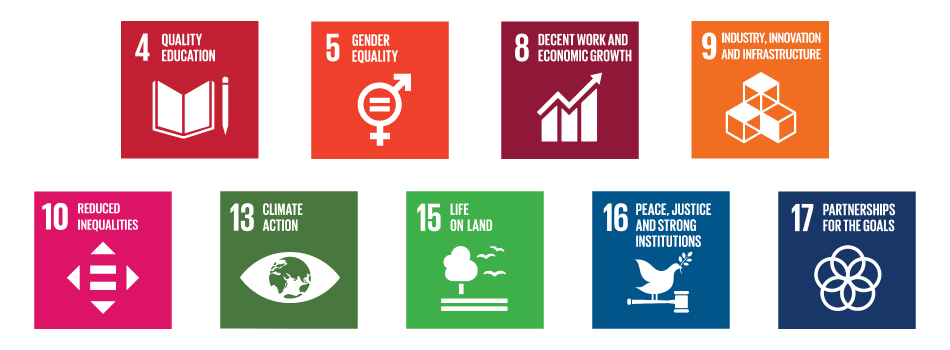
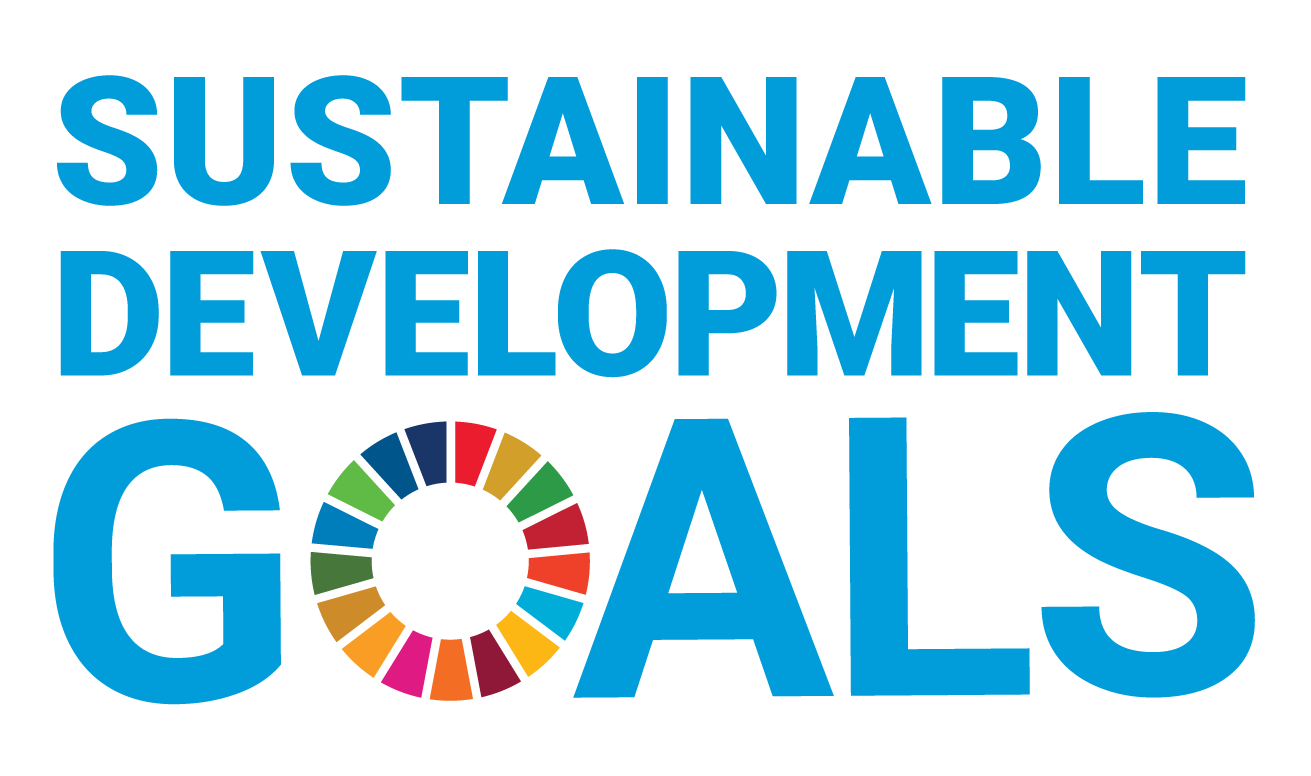
Watch Thomas Cardiel, our Group Director of Investor Relations, share how Eutelsat Group goes beyond financial value creation, by focusing on its economic, environmental, and social impacts.
Eutelsat Group undergoes evaluation by ESG rating agencies, which assess the company's sustainable development policies and accomplishments using their sector-specific methodologies.
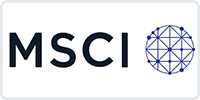
BBB
Highest Scoring in Corporate Governance compared to industry average

60/100
Silver certification

11.4
Low ESG risk
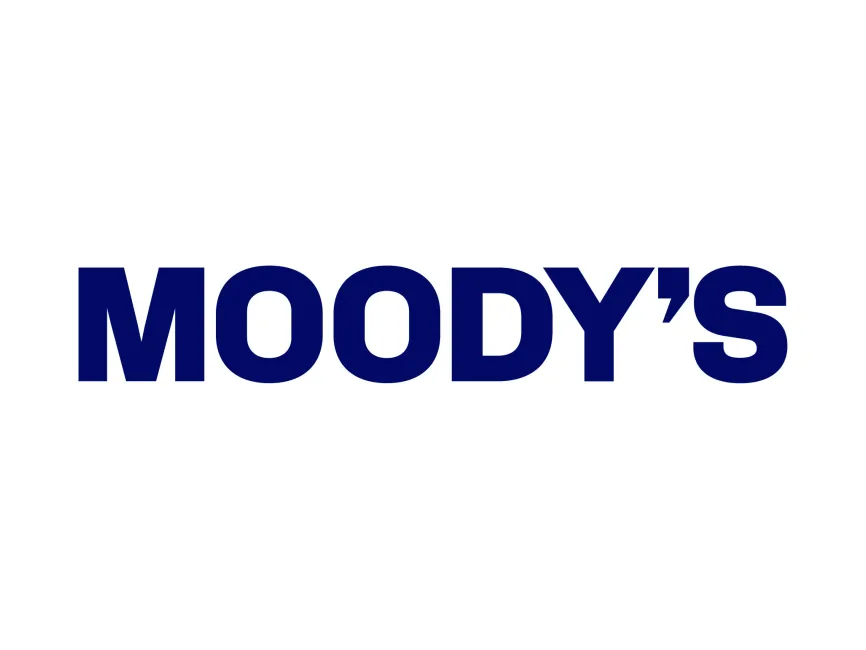
52/100
Score above the sector average

35/100
Score above the sector average

D
First public rating to underline our ESG commitment
Space Management
Eutelsat Group operates satellites in both geostationary orbit 35,786 kilometres (22,236 miles) above the Earth along the Equator, and in low Earth orbit approximately 1,200 kilometres (746 miles) above the Earth. The space debris management policies applied to these two different regimes are tailored to the specific needs and constraints of each orbit environment as described below.
The space debris management policies implemented by Eutelsat Group for many years makes the company a responsible global satellite operator maintaining high standards and making constant efforts to protect the Earth’s orbital environment and the sustainability of space operations.
We work in close partnership with satellite manufacturers and launch service providers to mitigate satellite satellite’s environmental impacts.
Space debris management policy for geostationary satellites
Eutelsat Group’s geostationary satellites operate 35,786 kilometres (22,236 miles) above Earth. At end-of-life (15 to 20 years), they are moved to a graveyard orbit, 300 kilometres beyond geostationary orbit, using allocated on-board propellant. This ensures they do not re-enter the GEO protected region (GEO +/-200 km) or the Earth’s atmosphere.
Throughout their operational lives, including decommissioning, these satellites comply with the French Space Operations Act and international regulations. Since the early 2000s, Eutelsat Group has implemented a responsible space debris management policy, combining operational experience with international recommendations. Our GEO satellite operations are certified ISO 9001 and ISO 27001.
In 2005, we established a Space Debris Mitigation Plan, aligned with international and European guidelines, and the French Space Operations Act. This Plan outlines requirements for end-of-life operations, passivation, and minimizing collision risks.
To date, we have re-orbited and passivated nearly 30 satellites at end-of-life, with a near 100% success rate, all in compliance with international guidelines and the French Space Operations Act. We assess collision risks using data from USSTRATCOM, the EU SST anti-collision service, and the Space Data Association database.
Eutelsat Group remains committed to sustainable space operations and minimizing space debris. Eutelsat is a founder member of the Net Zero Space initiative launched by the Paris Peace Forum, for the creation of a sustainable space environment by 2030 and a signatory of the ESA’s joint statement for a responsible sector.
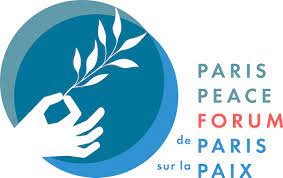
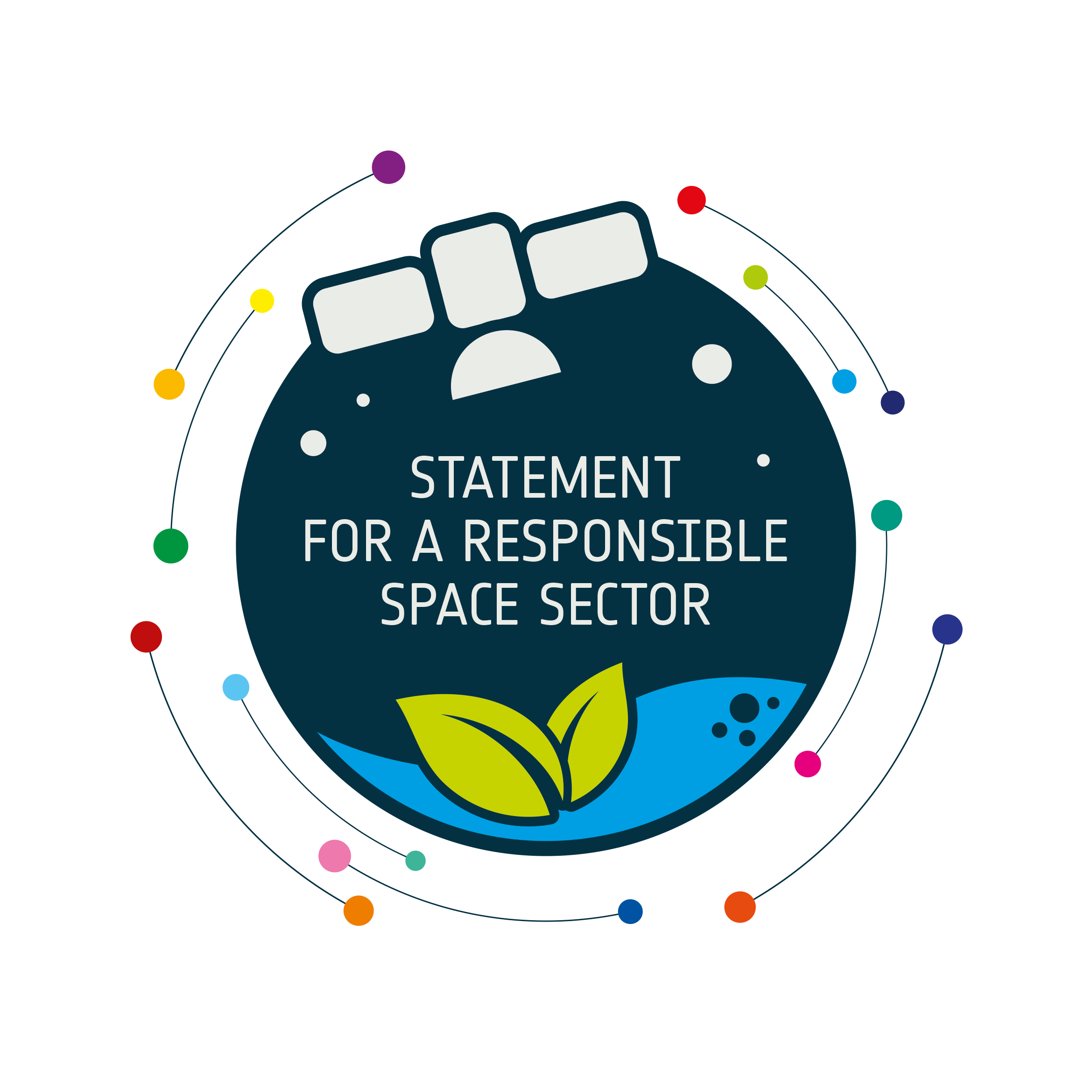
Space debris management policy for Low Earth Orbit satellites
Eutelsat Group’s first generation (Gen 1) OneWeb LEO constellation comprises 12 planes, each with up to 48 operational satellites. These satellites operate at an altitude of 1,200 km, with planes separated by 4 km for passive safety. Satellites are typically launched in batches of 34 to 40 and are injected into orbits between 450 km and 600 km. They then use electric propulsion to reach their mission orbit, with some remaining at 600 km temporarily.
At end-of-life, satellites de-orbit to around 250 km. Before atmospheric re-entry, their fuel tanks are emptied, batteries discharged, and onboard computers powered off, rendering them non-manoeuvrable. The Gen 1 OneWeb LEO satellites include features for potential de-orbiting or servicing via Active Debris Removal (ADR), with a demonstration mission by Astroscale expected in 2025. No debris is intentionally released during any mission phase.
The typical on-orbit lifetime for these satellites is 6.5 to 9 years, with the LEOP and EOR phases taking 6 months and deorbit phase about 1 year. Satellites operate in compliance with the UK Outer Space Act 1986 and the Space Industry Act 2018, adhering to international standards.
The constellation is managed with a highly automated ground system, using algorithmically standardized manoeuvre sequences, validated automatically and screened against up-to-date space object data from sources like the United States Space Force’s 19th Space Defense Squadron and LeoLabs. Eutelsat has established bilateral Space Traffic Management (STM) agreements with other major space constellations and has co-published best practices with SpaceX and Iridium.
To date, thanks to Eutelsat Group’s LEO fleet management system and operating principles, the team has successfully deorbited 2 satellites, orbit raised more than 600 satellites, automatically planned half a million manoeuvres, including risk mitigating ones, and monitored and managed more than 3 million crossings with neighbouring space objects.
Exemplary Space Traffic Management standards
OneWeb’s Space Traffic Management guidelines ensure collision risk management far exceeds industry standards. This dedication was recognized in 2024 with a Platinum rating by the Space Sustainability Rating initiative, reflecting our commitment to responsible space stewardship.

We recognize the significance of addressing the disparities in access to Information and Communication Technologies (ICTs) on a global scale. As part of our CSR mission, we are dedicated to pursuing extensive efforts to overcome the “digital divide” that hinders individuals and communities from benefiting from the opportunities presented by broadband access and satellite television broadcasting.
Discover how Konnect satellite broadband solution transforms lives in the most remote areas of DRC.
Our commitment to inclusive broadcasting
Eutelsat promotes access to free-to-air television for all households around the world.
As of 31 December 2022, the Group was broadcasting 6,800 TV channels including 2,480 free-to-air channels, accessible without subscription on its satellites (i.e., close to 30% of all channels broadcast as of that date), to an audience of over one billion viewers, mainly in Europe, Russia, the Middle East and Africa.
Supporting Emergency Telecoms
Eutelsat is one of the original signatories of the UN Crisis Connectivity Charter, integrated with the work of the World Food Programme (WFP). This Charter, which was signed in late 2015 by GVF (Global VSAT Forum), GSOA (Global Satellite Operators’ Association) and multiple satellite operators with the support of the Emergency Telecommunications Cluster (ETC) under aegis of the World Food Programme and the UN Office for the Coordination of Humanitarian Affairs, aims to provide governments and NGOs with immediate (within 24 hours) and resilient connectivity in the event of a major humanitarian crisis on four continents. It defines the framework for coordinating and working between stakeholders to optimise the arrangements and response times to telecommunications needs in emergencies.

Eutelsat and Télécoms Sans Frontières: a long-term partnership empowering humanitarian connectivity
On 13 December 2022, Eutelsat announced the inking of a multi-year sponsorship deal with the NGO Télécoms Sans Frontières, that follows on from a previous long-term partnership agreement between the two companies initiated in 2007.The assistance provided by Eutelsat under this partnership allows this international NGO to fit out a community or crisis unit with broadband connectivity within a few hours to send data, video or voice communications. As a sponsor, the Group is helping the NGO to strengthen its capacity in order to rise the communications challenges associated with emergency aid.
Find our more about our work with Télécoms Sans Frontières.

Supporting Mexican “Internet para todos” connectivity programme
Mexican service providers are working with Eutelsat to address Internet connectivity needs under CFE Telecommunications’ connectivity project for rural schools.
Under the Internet para Todos initiative, Eutelsat plays a lead role in bridging the digital divide, alongside three leading Mexican service providers, including Apco Networks and Globalsat. Eutelsat is currently providing them with capacity on its EUTELSAT 65 West A satellite, aimed at connecting Mexican rural schools through the installation of internet access points.
“Connectivity has become a basic human need, and we are honored to be a key part in the solution to assist the Mexican government in its mission to get all Mexicans online. This also aligns with our CSR mission to bridge the digital divide” – Richard Mortellaro, Chief Executive Officer of Eutelsat Americas.
We understand the urgency of addressing the challenges of climate change and are fully committed to accelerating our environment program in line with the Paris Agreement’s goal of limiting global temperature increase to 1.5°C. On a daily basis, we take concrete steps to reduce our environmental impact across our operations. This includes closely managing the impact of our geostationary satellite fleet, monitoring and optimizing our electricity consumption, implementing measures to minimize water consumption, actively addressing our impact on biodiversity, and adopting sustainable practices to mitigate waste production. We will be submitting our carbon reduction targets to the SBTi by 2024.
The Group assesses the significant items of greenhouse gas emissions over a broader scope, in compliance with Article 173 of France’s Energy Transition Act (Loi de transition énergétique) and according to the rules of ADEME’s carbon audit.
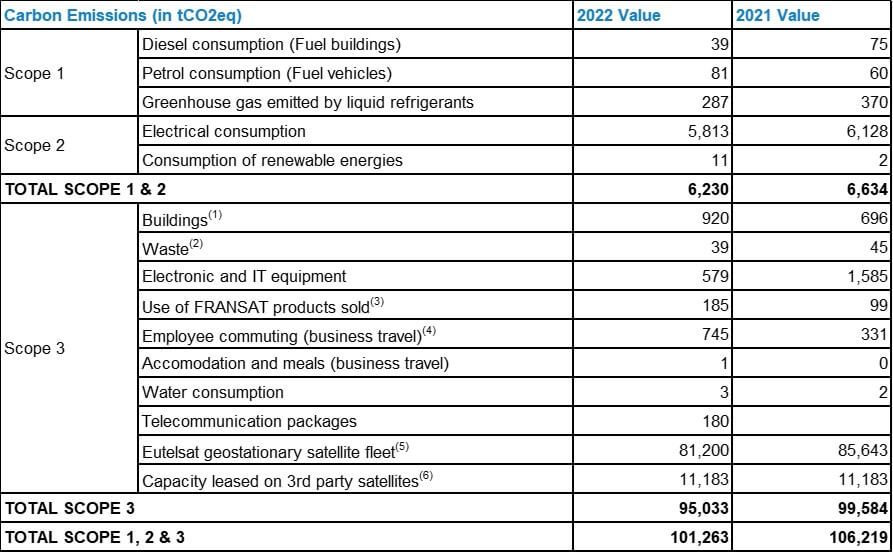
(1) All the buildings at our sites are amortised for their entire life cycle.
(2) All the waste generated.
(3) FRANSAT products are only sold in France.
(4) All rail and air travel by the Group’s employees.
(5) All the satellites in our fleet are amortised over their entire design life cycle.
(6) The carbon impact of the satellites we lease as a proportion of the capacity leased by Eutelsat
Generating green energy
The Group has been actively increasing its capacity to generate green energy through the installation of solar panels as its teleports. In 2022, the electricity generated from solar panel systems owned and operated by Eutelsat at its teleports witnessed a remarkable increase of +436% compared to the previous year. This significant surge was primarily driven by the installation of a new solar panel system at the Cagliari teleport in Sardinia.
IMAGE
The momentum for harnessing solar power is set to continue in 2023, as additional solar panel systems are scheduled to come online at both Eutelsat teleports in Italy, specifically Cagliari and Turin. Moreover, plans are underway to assess and implement solar panel systems at the Group’s sites in Mexico, with detailed assessments currently underway.
Eutelsat’s strategy focuses on prioritizing green energy installations in countries where the carbon impact of procured electricity is highest. Italy and Mexico, with their substantial carbon footprints, present significant opportunities for carbon reduction through the adoption of renewable energy sources. By embracing renewable energy, Eutelsat not only contributes to mitigating climate change but also yields substantial environmental benefits.
Furthermore, Eutelsat is actively exploring the feasibility of implementing solar panel systems at its teleports in France (Rambouillet) and on the island of Madeira (Caniçal). While a solar system has been in place at the Madeira site since 2016, delivering approximately 30,000 KWh/year, the Group is assessing further installations to enhance its green energy generation efforts.
Eutelsat’s Cagliari teleport goes green. A look at the benefits of solar energy for satellite operations (link video).
Protecting biodiversity
Eutelsat understands the importance of biodiversity and its’ key role in mitigating the impacts of climate change. In France, Eutelsat owns 96 hectares of land, located just outside Paris on which the Paris-Rambouillet teleport is situated. This is the largest area of land owned by the Eutelsat Group worldwide, with approximately 85 hectares used for organic agricultural purposes.
This process was successfully completed in 2021 when the lease farmer obtained Organic Agriculture certification delivered by the Departmental Directorate of Territories (DDT) and recognised by the French and European authorities.

At the Caniçal teleport on the island of Madeira, two specific measures have been implemented to promote biodiversity and minimize pollution. Firstly, there is an emphasis on maintaining natural, green environments in all outdoor spaces, typically featuring gardens with ample provision of bushes and trees. Secondly the wastewater generated from the annual antenna cleaning, necessary for lubrication and salt removal, is carefully contained to prevent soil pollution. It is collected by a licensed entity to ensure proper management.
Eutelsat Madeira has been awarded first place for its outstanding environmental performance in 2022 by the Government of Madeira, recognizing its commitment to environmental sustainability and promoting pollution-reduction practices.
Generating green energy
The Group has been actively increasing its capacity to generate green energy through the installation of solar panels as its teleports. The electricity generated from solar panel systems, owned, and operated at Eutelsat teleports increased by 42,807 KWh (17%) in 2023 compared to 2022.
The Group is intensifying its efforts to increase green energy production by equipping more of its teleports with solar panels. This voluntary initiative aligns with our sustainable development goals and the reduction of our carbon footprint to combat climate change, in accordance with the Paris Agreement. Existing installations are being expanded in Sardinia and Madeira, and new solar systems deployed in Hermosillo and Iztapalapa, in Mexico, addressing strategic locations for solar energy production.
Eutelsat’s strategy focuses on prioritizing green energy installations in countries where the carbon impact of procured electricity is highest. Italy and Mexico, with their substantial carbon footprints, present significant opportunities for carbon reduction through the adoption of renewable energy sources. By embracing renewable energy, Eutelsat not only contributes to mitigating climate change but also yields substantial environmental benefits.
Furthermore, Eutelsat is actively exploring the feasibility of implementing solar panel systems at its teleports in Rambouillet, France.
Eutelsat’s Cagliari teleport goes green. Take a look at the benefits of solar energy for satellite operations.
Protecting biodiversity
Eutelsat understands the importance of biodiversity and its’ key role in mitigating the impacts of climate change. In France, Eutelsat owns 96 hectares of land, located just outside Paris on which the Paris-Rambouillet teleport is situated. This is the largest area of land owned by the Eutelsat Group worldwide, with approximately 85 hectares used for organic agricultural purposes.
This process was successfully completed in 2021 when the lease farmer obtained Organic Agriculture certification delivered by the Departmental Directorate of Territories (DDT) and recognised by the French and European authorities.
At the Caniçal teleport on the island of Madeira, two specific measures have been implemented to promote biodiversity and minimize pollution. Firstly, there is an emphasis on maintaining natural, green environments in all outdoor spaces, typically featuring gardens with ample provision of bushes and trees. Secondly the wastewater generated from the annual antenna cleaning, necessary for lubrication and salt removal, is carefully contained to prevent soil pollution. It is collected by a licensed entity to ensure proper management.
Eutelsat Madeira has been awarded first place for its outstanding environmental performance in 2023 by the Government of Madeira, recognizing its commitment to environmental sustainability and promoting pollution-reduction practices.
Business ethics
Integrity and ethics are key priorities for the Group. This is reflected in the governing body’s commitment to fighting corruption and all forms of unethical business practices. It is demonstrated by all the actions and measures put in place not only to prevent and detect corruption or influence peddling, but also to ensure compliance with regulations on personal data protection and competition law.
The Eutelsat Code of Ethics provides all Eutelsat employees with the tools and guidelines that will enable them to resolve the issues and dilemmas they may encounter in their work.
Our Code of Conduct explains our commitment against all forms of corruption and influence peddling. It expresses Eutelsat’s zero tolerance policy in this regard and applies to everyone who works for the Group, both in France and abroad.
Our Code of Conduct for Suppliers is based on the principles of the United Nations Global Compact, of which Eutelsat is a signatory, and reflects the values and principles relating to ethics, human rights, labour law, environmental and anticorruption standards that Eutelsat wants to promote in the day-to-day operation of its business. Eutelsat applies these values and principles to each of its business activities and expects its suppliers to comply with the standards set out in the Code.
Diversity & Inclusion
At Eutelsat, we are dedicated to strengthening and continuously improving our social commitment. With a special emphasis on diversity and employee engagement, we strive to create more inclusive and supportive environment. The multicultural composition of our workforce, deeply rooted in our DNA, is a distinctive asset that we are committed to perpetuating. With 1600 commercial, technical, and operational employees from over 50 countries, our unique human resource is a distinctive asset that we are committed to perpetuating.
Everyone works based on shared values, endorsing both internally and publicly the values that the Group believes in:
One Team, Customer Centricity, and Respect
We believe in the power of collaboration, teamwork, and mutual support. By fostering a strong sense of unity and cooperation among our employees, we promote a culture of inclusivity, respect, and shared responsibility. The representation of women within the business and gender equality are priorities for the Company.
WORKFORCE
At the end of 2023, Eutelsat employed over 1600 professionals.
The percentage of women in the Group was 28.6%.
NATIONALITIES
Cultural diversity is significant within the Group with 50 nationalities represented
LEADERSHIP
Company led by a female CEO
Seven nationalities are represented on the Board of Directors with a 60:40 female to male split
One third of the Executive Committee is composed of women
Eutelsat publie le résultat de l’index 2023 de l’égalité entre les femmes et les hommes.
Notre index d'égalité femmes-hommes est de 88/100.
L’index est calculé sur la base de cinq indicateurs :
- L’écart de rémunération : 33 /40
- L’écart de taux d’augmentations individuelles de salaire : 20/20
- L’écart de promotion : 15/15
- Le pourcentage de salariées ayant bénéficié d’une augmentation dans l’année suivant leur retour de congé maternité : 15/15
- Le nombre de salariés du sexe sous-représenté parmi les 10 salariés ayant perçu les plus hautes rémunérations : 5/10

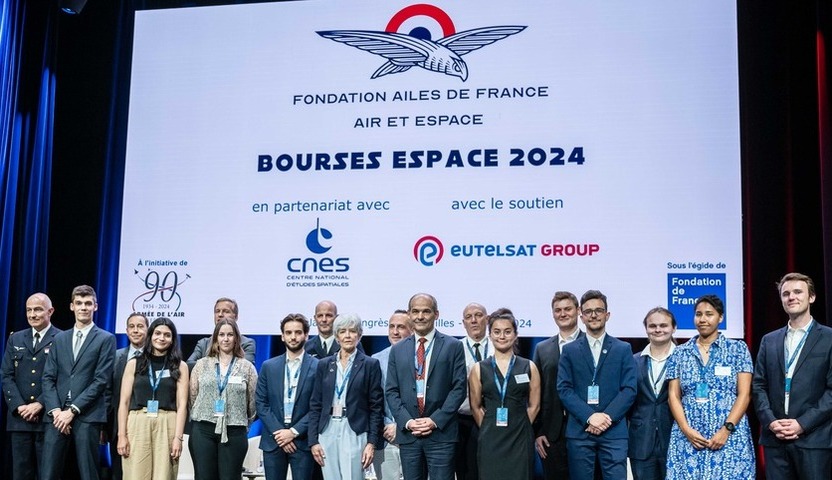
Encouraging young talents in their space-related projects
Eutelsat is collaborating with the Ailes de France Foundation, which was established under the auspices of the Fondation de France. In association with the CNES (Centre National d’Etudes Spatiales), Eutelsat is actively involved in the project by funding scholarship funds, known as ESPACE scholarships, valued at 5,000 euros each. The aim of these scholarships is to provide young individual aged up to 25, who are pursuing various scientific and non-scientific studies, with the opportunity to realise their educational projects in the space industry.
Eutelsat's renewed commitment to the Foundation aligns with the Group's extensive history of supporting the education and professional integration of young individuals, as well as the cultivation of future talented professionals in the space sector.
Every year, a jury consisting of distinguished experts from CNES, Eutelsat, the French Air Force and space industry firms convenes to select the project.

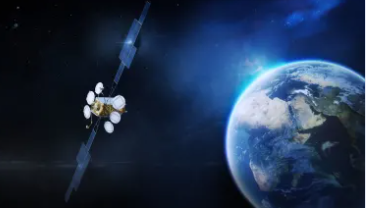
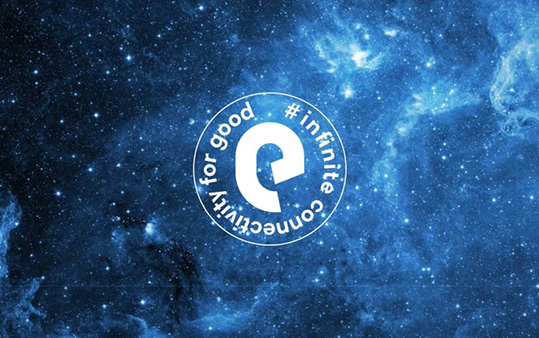
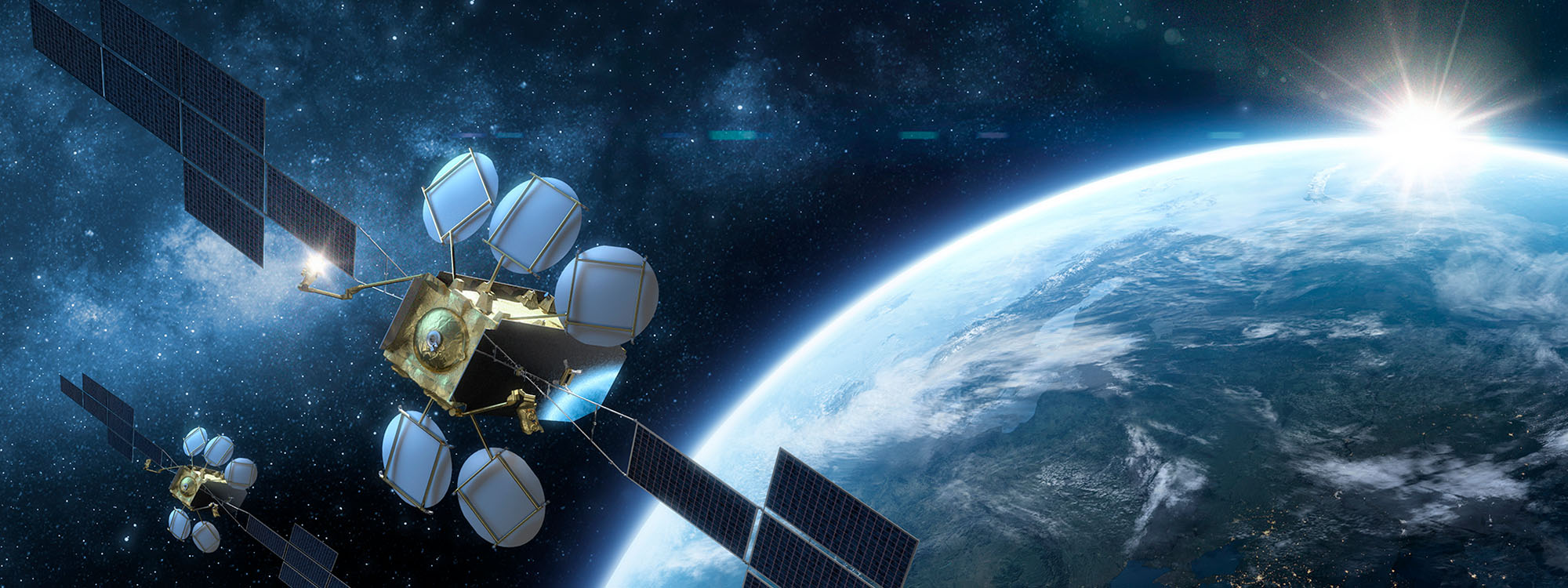

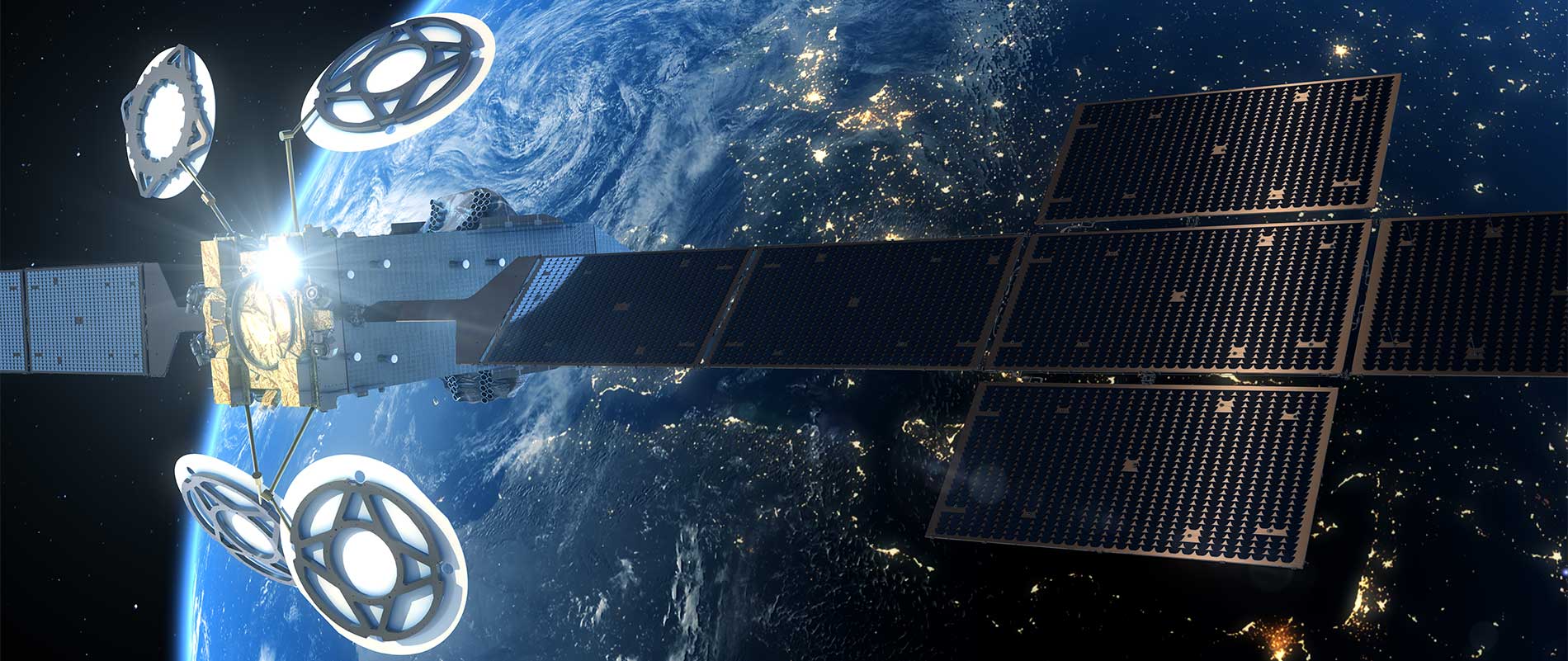

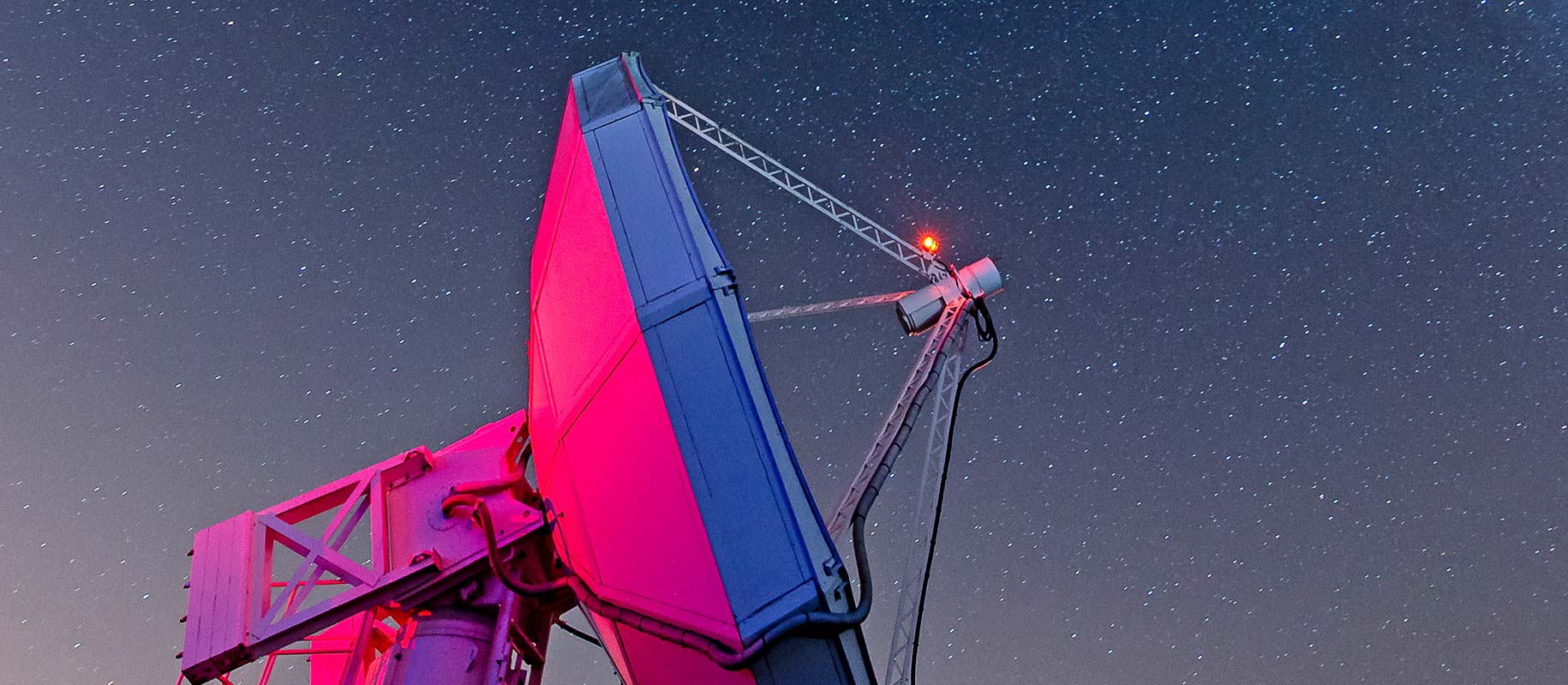

.jpg?t=thumbnail2)